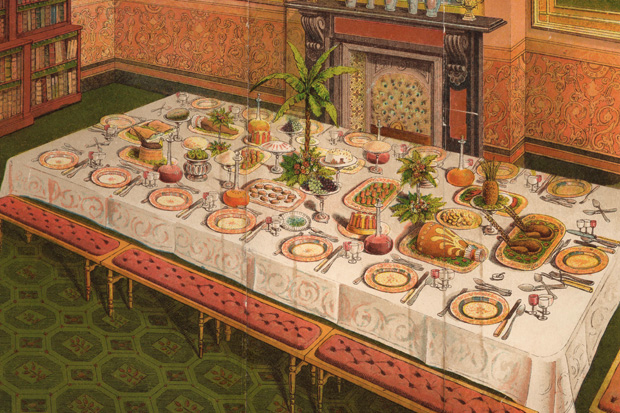In Cooking People Sophia Waugh describes, with dash and wit, the personalities of five important women cookery writers: two Hannahs (Woolley from the 17th century and Glasse from the 18th), Eliza Acton and Isabella Beeton from the 19th, and Elizabeth David from the 20th. And she illustrates their merits with recipes for the home cook that are (mostly) still usable today: Woolley’s ‘To Boyl a Salmon’ of 1664 would produce a juicy, perfectly cooked fish, despite the lack of quantities, cooking time or ingredients list. Acton, a proper cook who laboured for ten years on her book, is Waugh’s darling. David is a vivid writer but ‘upper- class, opinionated and direct, with a feeling of entitlement that was bred in her’.
Though Waugh assesses her chosen cooks astutely and follows their recipes with gusto, the real joy of the book lies in her own quirky personality and her asides, which are sometimes inconsequential, sometimes laugh-out-loud funny. Her food-mad family, and particularly her mother, a brilliant cook, are constantly quoted.
Waugh describes Mrs Beeton, author of one of her mother’s only two cookery books, as ‘much-loved’, but one senses that she herself is not a fan. Beeton is a pedant and a bore. From a close reading of the 2,751 numbered paragraphs of Beeton’s book Waugh winkles out one original conundrum: Beeton asks ‘for what purpose the Jews kept droves of swine’ (as in the parable of the Prodigal Son) when they weren’t allowed to eat pork? Thank you, Sophia Waugh, for finding something interesting in Mrs Beeton’s Book of Household Management.






Comments